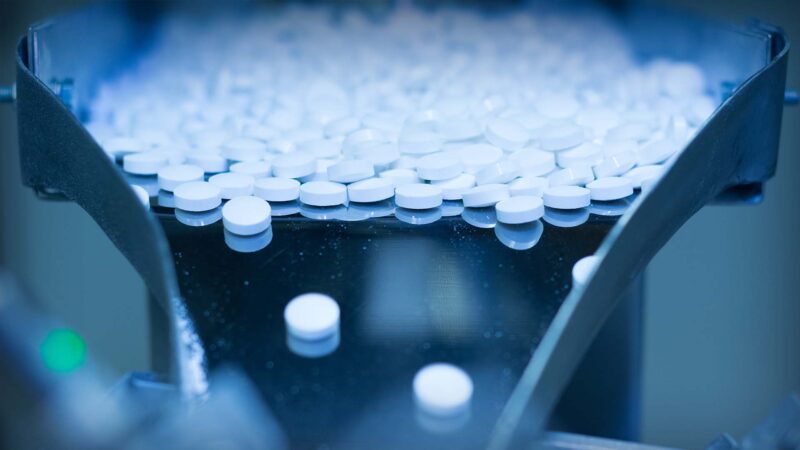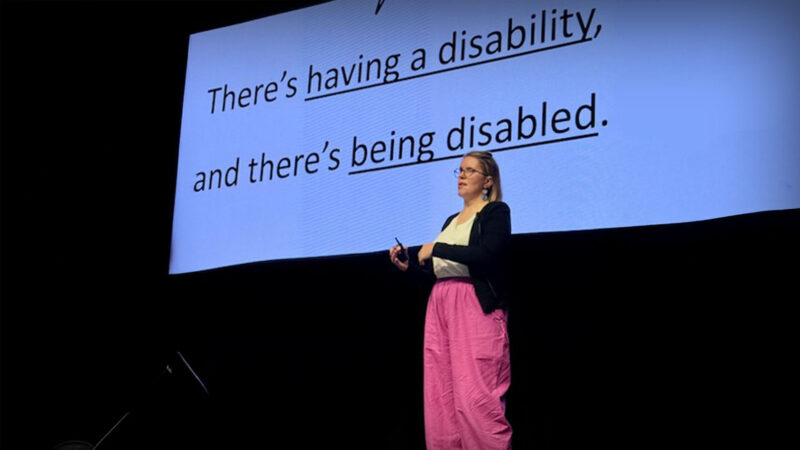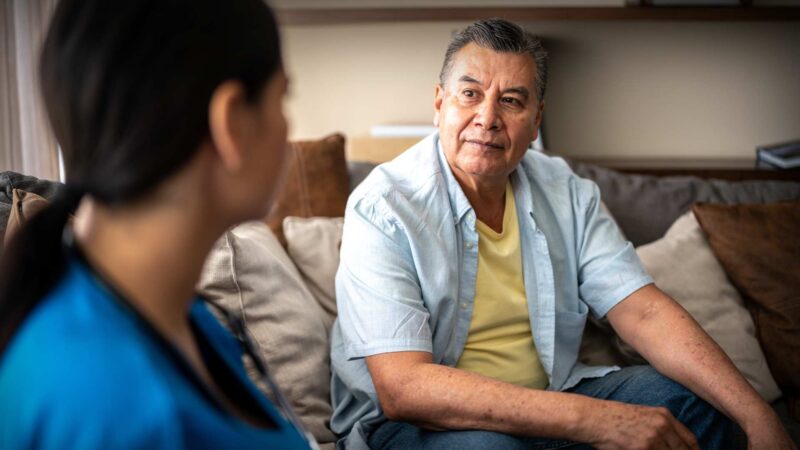In Australia in the last five years, an estimated 6066 women per year have undergone hysterectomies to treat fibroid-related diseases, while just 145 women each year have undergone a uterine artery embolisation, or UAE.
The procedure can effectively treat the majority of bleeding uterine fibroids. Each year, thousands of Australian women undergo invasive and life-altering hysterectomies to treat debilitating pain and blood loss caused by uterine fibroids. But there’s another option: a minimally invasive, pin-hole procedure that treats the symptoms, yet leaves the uterus intact.
Professor Warren Clements, interventional radiologist and head of the UAE service at The Alfred, said despite the proven safety and efficacy of the procedure – which was developed in the 1990s – it is simply not provided as an option to many women, something he urgently wants to change.
“Fibroids are highly prevalent in society and women need access to a range of different treatments so that they can choose what is the best for them,” Prof Clements said in an interview with Australian Health Journal.
“Every year, many women have a hysterectomy who would be suitable for a non-surgical alternative. UAE is an amazing non-surgical treatment and allows women to keep their uterus if they want to.”
The procedure is all done through a single pinhole incision, whereas a hysterectomy requires open surgery. It involves using low-dose x-rays and contrast dye to guide catheters through the arteries towards fibroids in the uterus. A medication is used to block the blood supply to the fibroids, which causes them to shrink. The procedure takes about half an hour, is done under ‘twilight’ sedation, and only requires one overnight recovery stay.
”Many women aren’t aware that this is a very minor procedure compared to hysterectomy,” Prof Clements said. “Women can resume normal activities the following day. The recovery is short, and most women can go back to work within a week. More than 90 per cent of women with heavy periods will have significant improvement in their symptoms after UAE.”
Professor Warren Clements, is also Honorary Researcher – Interventional Radiology, National Trauma Research Institute, Professor, Interventional Radiologist (IR) and the Head of Fluoroscopy in the Department of Radiology at Alfred Health. He is also a Fellow of the Royal Australian and New Zealand College of Radiologists (RANZCR).
Credit: Alfred Health
You Might also like
-
Sovereign capability uplifted
Skilled labour, in particular skilled in the manufacture of MTP products, namely competency in Good Manufacturing Practice (GMP), was identified as one of the key priorities, according to Jarrod Belcher, Director of the REDI Program at MTPConnect. Through a competitive process, MTPConnect selected additional industry training providers to deliver new programs addressing key skills gaps in the sector workforce.
Launched in September 2022, one of these programs is GMP Uplift developed by the Centre for Biopharmaceutical Excellence (CBE). CBE bring experience across large and small Biologics, Pharmaceuticals and Regenerative Medicine companies, both in consulting and GMP related enterprise training. CBE staff also have extensive experience in GMP operations, compliance, auditing and QMS design, a wide industry network for guest lecturers and readily available case studies.
-
Reducing patient accessibility barriers in the clinical setting
Hannah McPierzie is a globally respected presenter, disability advocate, and educator who offers a unique perspective on disability and communication. She lives with Neurofibromatosis Type 2, a rare degenerative condition, and has two auditory brainstem implants. After 15 years teaching in the disability sector, Hannah acquired disability herself in 2020, when life-saving surgery left her deafblind.
-
Early detection & surveillance guides for pancreatic cancer
Pancreatic cancer remains one of Australia’s deadliest cancers, with five-year survival rates hovering at just 14%, with little improvement over several decades. Often called the ‘silent killer’, the disease frequently presents with minimal or vague symptoms, resulting in late diagnoses and poor outcomes. Pancare Foundation is leading the rollout of new clinical resources and surveillance guides to support healthcare professionals in identifying at-risk patients and promoting early detection.



